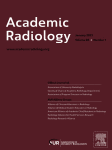Abstract
Rationale and Objectives
Cardiac indices can predict disease severity and survival in a multitude of respiratory and cardiovascular diseases. Herein, we hypothesized that CT-measured cardiac indices are correlated with severity of lung involvement and can predict survival in patients with COVID-19.
Materials and Methods
Eighty-seven patients with confirmed COVID-19 who underwent chest CT were enrolled. Cardiac indices including pulmonary artery-to-aorta ratio (PA/A), cardiothoracic ratio (CTR), epicardial adipose tissue (EAT) thickness and EAT density, inferior vena cava diameter, and transverse-to-anteroposterior trachea ratio were measured by non-enhanced CT. Logistic regression and Cox-regression analyses evaluated the association of cardiac indices with patients’ outcome (death vs discharge). Linear regression analysis was used to assess the relationship between the extent of lung involvement (based on CT score) and cardiac indices.
Results
Mean (±SD) age of patients was 54.55 (±15.3) years old; 65.5% were male. Increased CTR (>0.49) was seen in 52.9% of patients and was significantly associated with increased odds and hazard of death (odds ratio [OR] = 12.5, p = 0.005; hazard ratio = 11.4, p = 0.006). PA/A >1 was present in 20.7% of patients and displayed a nonsignificant increase in odds of death (OR = 1.9, p = 0.36). Furthermore, extensive lung involvement was positively associated with elevated CTR and increased PA/A (p = 0.001).
Conclusion
CT-measured cardiac indices might have predictive value regarding survival and extent of lung involvement in hospitalized patients with COVID-19 and could possibly be used for the risk stratification of these patients and for guiding therapy decision-making. In particular, increased CTR is prevalent in patients with COVID-19 and is a powerful predictor of mortality.
Key Words
How to Cite
The Association of CT-measured Cardiac Indices with Lung Involvement and Clinical Outcome in Patients with COVID-19,
Academic Radiology,
Volume 28, Issue 1,
2021,
Pages 8-17,
ISSN 1076-6332,
https://doi.org/10.1016/j.acra.2020.09.012.

